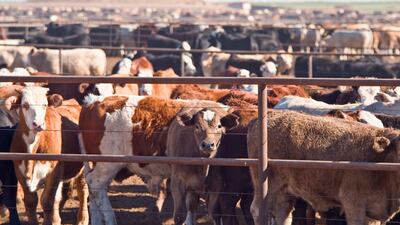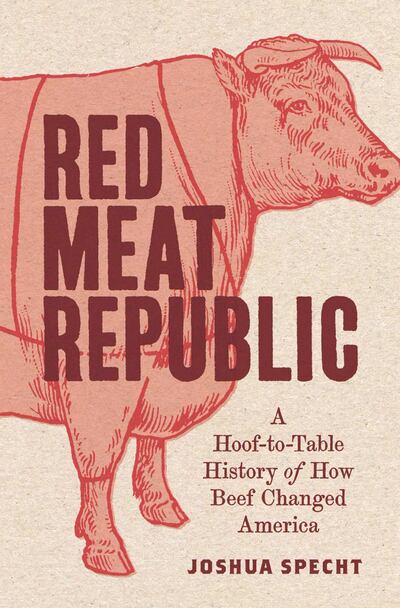One will never watch a Western again – or chew a tenderloin – with the same peace of mind after reading Joshua Specht's fine Red Meat Republic. Specht, an American historian teaching in Australia, illustrates what it took to turn the US into the "Cattle Kingdom", including the myths and lies that ensure the cattle-beef complex its privileged status today. Like an array of insightful new books on the American empire, Specht's tome makes for disturbing reading as it examines the origins of the US and its political culture from an unfamiliar, uncomplimentary angle. Specht doesn't connect the dots, but this history has an important place in the context of the nation's current conundrum.
The strongest and most unnerving chapters deal with the 19th-century expansion of the US across the western territories. The young cattle industry functioned as both accomplice and rationale for the country's bloody march west of the Mississippi River. The symbiosis of the cattle drivers and the US military enabled the country to expand its borders at incredible speed. Ultimately, they had exactly the same goal: to wipe out the Native Americans in their path and capture the millions of acres there.
The US's early genocides of the Native American tribes are a diabolical story that most Americans choose not to dig into (unlike the Germans, who have made their exploration of the Holocaust – and pledge that it never be repeated – into the sine qua non of their state.) But its traces are ever-present once you know where to look – like in your cheeseburger. Specht shows how ranchers pursuing the dream of an endless Cattle Kingdom were integral to the dispossession of the Native Americans, and then how they were turned into a captive market for their meat.
While it was the US military that did most of the ethnic cleansing, the cattle movement functioned as its right hand in the bloody conquest of the West. First they removed the bison – the crux of the Indians’ existence – and then the natives themselves.
He argues that the ranchers and bison hunters "materially supported the military, providing suppliers or local knowledge about Indian supply routes. Organised and well-armed, in some places ranchers even acted as paramilitaries. It was not merely that the military swept the Great Plains clear during the decades after the Civil War, and that ranching arose in place of the bison hunt. Rather, cattle ranchers and bison hunters precipitated conflict with American Indians and agitated for government intervention."
Specht is understandably incredulous about the way this violent, greed-motivated atrocity could be turned into the benevolent myth of the frontier and taming of the West, one of the US's ideological cornerstones. The idea of the open, empty, "free" range; of the hearty pioneers and settlers; of the uncivilised, racially inferior Indians; and the light-hearted, independent-spirited cowboys still exists today. It's there when Donald Trump wears a cowboy hat and calls for "America first".
The mythology of the West not only enabled Americans to quickly forget the ugliness of its making, but also, once the cattle sector settled down, to sell its products to a mass market. Beef was, and still is, seen as something deemed authentically American, manly and righteous. This PR line helped gloss over other unsavory aspects of the beef-cattle complex, such as the wretched conditions of the meatpacking industry.
As enlightening as Red Meat Republic is, Specht could have added two chapters, which would have rounded out the book and delivered it into the present. One is a much more elaborate examination of the nature of the inexpensive processed products made from beef. Food labels tell us nothing about how hot dogs, sausages and corned beef are made; and those in-the-know say this is exactly why they don't touch any of it. The ingredients are one thing, the conditions of the beasts' lives are another. What per cent of these cattle never see the light of day at all, much less that of an open range? Animal rights activists scream to the heavens about the cramped, disease-ridden barns of the livestock raised for our consumption. But Specht doesn't take it very far.
Also, the raising of all livestock, though beef in particular, now has an entirely new dimension in light of the climate crisis.
Beef has no place in a diet for a small planet, something that writer and activist Frances Moore Lappe, among others, recognised as early as 1971. Its enormous role in global warming makes it and its industry even more sinister than Specht implies. Unlike beef’s conquest of the American West, its tracks are now global, responsible for the destiny of human beings the world over.



